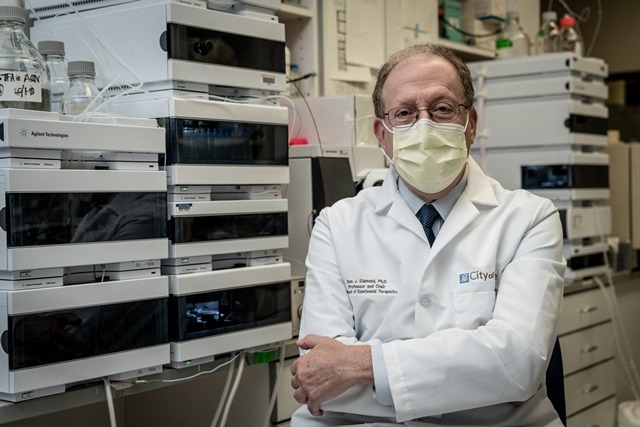City of Hope, the US-based independent biomedical research and treatment centre, has commenced phase 1 clinical trial to evaluate its first SARS-CoV-2 investigational vaccine.

City of Hope’s department of haematology and haematopoietic cell transplantation professor Dr Don Diamond led the investigational vaccine’s development. (Credit: City of Hope)
Subscribe to our email newsletter
City of Hope will assess the investigational vaccine, dubbed COH04S1, in healthy volunteers aged between 18 and 55 who have not had Covid-19.
The investigational vaccine is being tested to stimulate the immune system to produce antibodies that can restrict the virus from entering cells and T cells that are believed to offer protection against future outbreaks.
City of Hope stated that Dr Don Diamond, a professor with its Department of Hematology & Hematopoietic Cell Transplantation, is leading the development of the investigational vaccine.
A team of scientists from City of Hope, led by Felix Wussow and Flavia Chiuppesi, worked with Dr Diamond to develop a synthetic modified vaccinia ankara (sMVA) platform technology to produce the investigational vaccine.
The sMVA technology has been designed to include the genetic components that make up the compound at a molecular level. MVA is a weakened poxvirus secured approval from the US Food and Drug Administration to prevent smallpox and monkeypox.
SARS-CoV-2 spike and nucleocapsid proteins have been inserted into the MVA platform, which then replicate DNA within cells and express the SARS-CoV-2 proteins to trigger immunity against the virus.
City of Hope’s study will assess whether a single dose is sufficient for immune protection, including the long-lived T cell immunity that may expand protection to avoid booster shot in future years.
The investigational vaccine is being developed in a freeze-dried form to avoid cold-chain requirements.
City of Hope intends to recruit a minimum of 119 trial participants in around four months. Trial participants will secure two injections in the muscle of their upper nondominant arm 28 days apart.
According to the company, the injections could be both the investigational vaccine, the vaccine followed by a placebo, or both injections could be placebos.
City of Hope will move to testing in a phase 2 trial, expected to be in the second quarter of 2021, based on safe and tolerable dose defined by the first trial.
City of Hope will manufacture the investigational vaccine at its main campus within the Center for Biomedicine & Genetics.
Dr Diamond said: “Based on preclinical research, we are hopeful that the vaccine will protect against SARS-CoV-2 infection that can lead to Covid-19 disease, helping to halt the spread of the current Covid-19 pandemic.”
Recently, Pfizer and BioNTech announced that their BNT162b2 Covid-19 vaccine candidate has achieved all primary efficacy endpoints in the phase 3 study.
 Advertise With UsAdvertise on our extensive network of industry websites and newsletters.
Advertise With UsAdvertise on our extensive network of industry websites and newsletters.
 Get the PBR newsletterSign up to our free email to get all the latest PBR
news.
Get the PBR newsletterSign up to our free email to get all the latest PBR
news.

